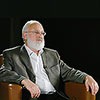How Do You Define Good And Evil?
 The Zohar, Chapter “VaYikra (The Lord Called),” Item 87: Since the Torah came out of Bina, the first tables were written from Bina, when it writes, “Harut [Engraved] on the tables,” do not read it, Harut [engraved], with a Kamatz, but rather Herut [freedom], with a Tzereh. It is actual freedom since it is the place upon which all the freedom depends, for there is no freedom from all the Klipot unless through the lights of Bina. Also, there is nothing in the Torah that is divided or that does not go into one place, Malchut, or does not gather into one wellspring, which is Yesod.
The Zohar, Chapter “VaYikra (The Lord Called),” Item 87: Since the Torah came out of Bina, the first tables were written from Bina, when it writes, “Harut [Engraved] on the tables,” do not read it, Harut [engraved], with a Kamatz, but rather Herut [freedom], with a Tzereh. It is actual freedom since it is the place upon which all the freedom depends, for there is no freedom from all the Klipot unless through the lights of Bina. Also, there is nothing in the Torah that is divided or that does not go into one place, Malchut, or does not gather into one wellspring, which is Yesod.
We are the matter of creation, the will to enjoy, the will to fulfill ourselves. This desire is only able to receive. If the intention over this desire is “to receive for one’s own sake,” then we call this intention (but not the desire) “evil.”
Desire is matter which does not change. It cannot be deemed good or bad. Only the intention determines whether the desire is good or bad. And therein lies our freedom of choice.
We don’t have freedom of choice about our desires on the still, vegetative, and animate levels. We cannot change anything about those desires. This fact is also confirmed by all the scientific research. The only change we can possibly make is on the human level; we can change the intention above the desire.
The desire itself was created by the Creator and was given to us in an unchanging form. The intention above the desire that we were initially given is egoistic, “for our own sake.” We have to realize that this intention is evil because it is aimed against unity, against bestowal to one’s neighbor, and against bestowal to the Creator.
However, our intention can be made opposite, “for the sake of others,” for the sake of bestowal. Then it is called, “the good inclination.” Thus, the good inclination and the evil inclination, or good and evil, are defined according to one’s intention. However, the “inclination” itself, the desire, is unchangeable. Everything is defined by the intention on the human level. The intention to become similar to the Creator is called good, and the opposite intention is called evil. The expression of the intention takes place through unity or through separation from others.
Therefore, out of all my intentions, I have to choose only the ones that give me freedom of choice: the freedom to unite with others through a shared intention for mutual bestowal. And we thereby become equal to the Creator.
This is our only chance to choose good or evil, whether in relation to our egoism or in relation to what the Creator places before us. Therefore, if we wish to correct ourselves, it can only be done by Bina, the upper quality of bestowal. When Bina comes to the will to enjoy, it transforms its evil quality into a good quality. That is to say, it changes the intention of reception to the intention of bestowal.
From the 1st part of the Daily Kabbalah Lesson 5/17/10, The Zohar
Related Material:
Laitman.com Post: The Soul Is Between Darkness And Light
Laitman.com Post: The Field Of Intentions
Kabbalah Moments: Spiritual Measurements (00:59)

 Laitman.com Comments RSS Feed
Laitman.com Comments RSS Feed





I really appreciated this post, because it reminded me that desires do not change, but that desires are useful to changing intention, so that if we focus on our long to equalize in form with the Creator, the light that reforms makes it happen.
It seems to me that you have provided an explanation for the meaning of good and evil that rings true and makes sense – another new revelation for me as a student of Kabbalah.
What if the desire itself is considered bad by the person (due to culture, religion or other) It becomes a real problem to try to manage the desire (the pulsion) to a more morally accepted act. How can you adress this issue. THank you infinitely.